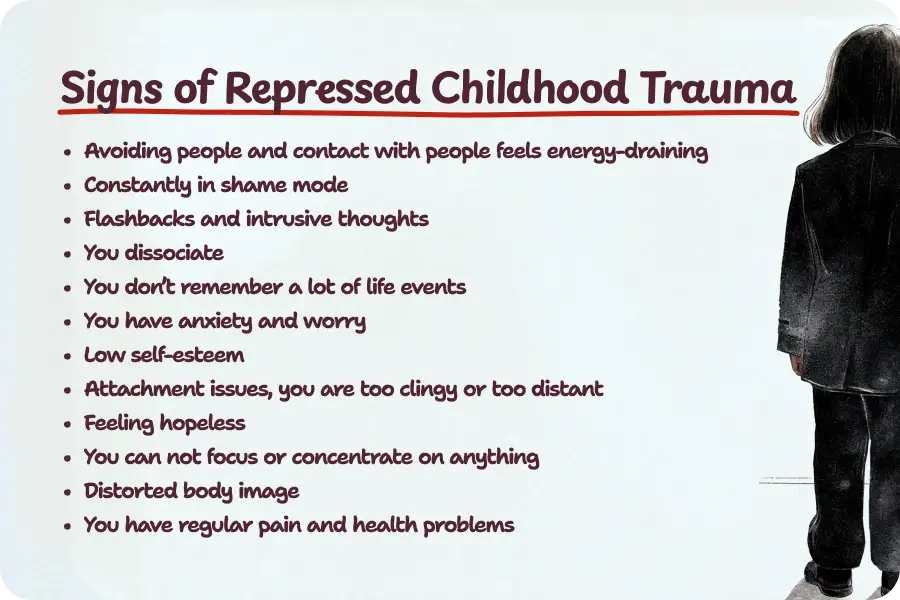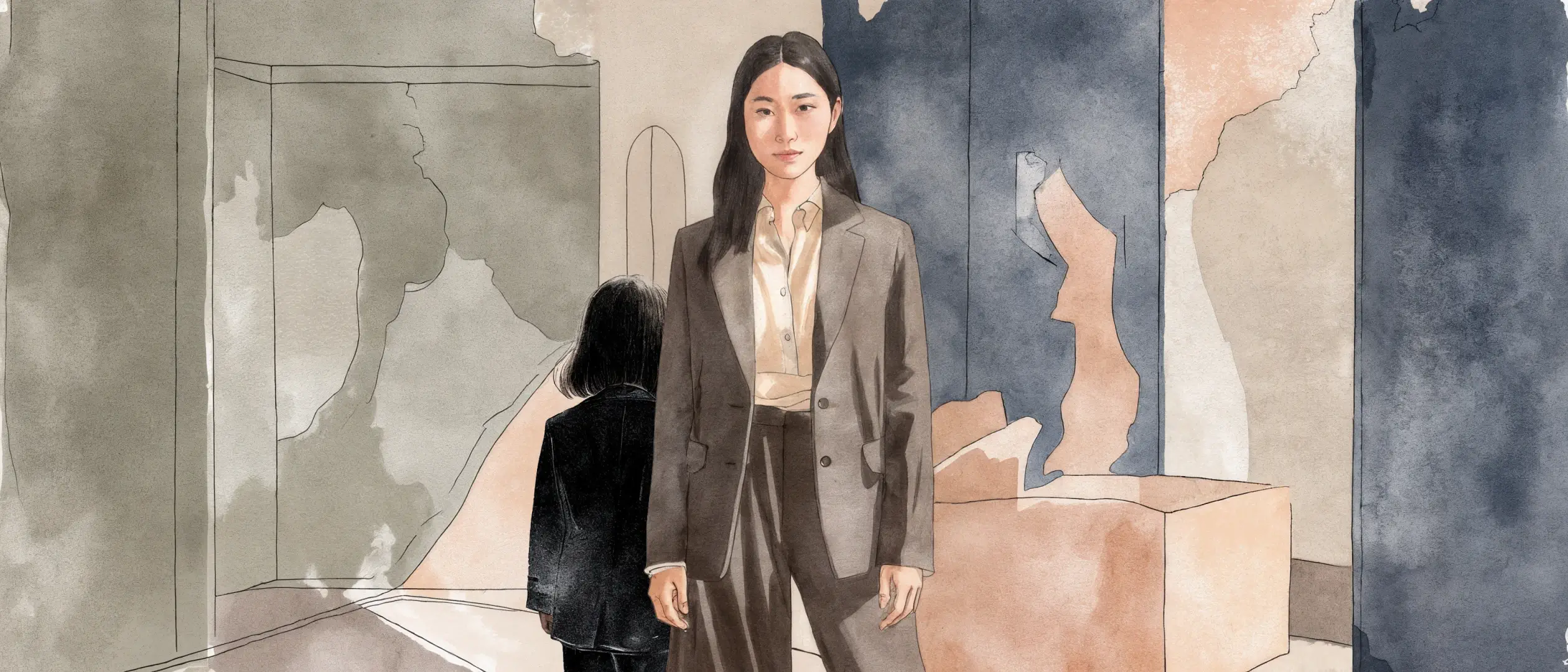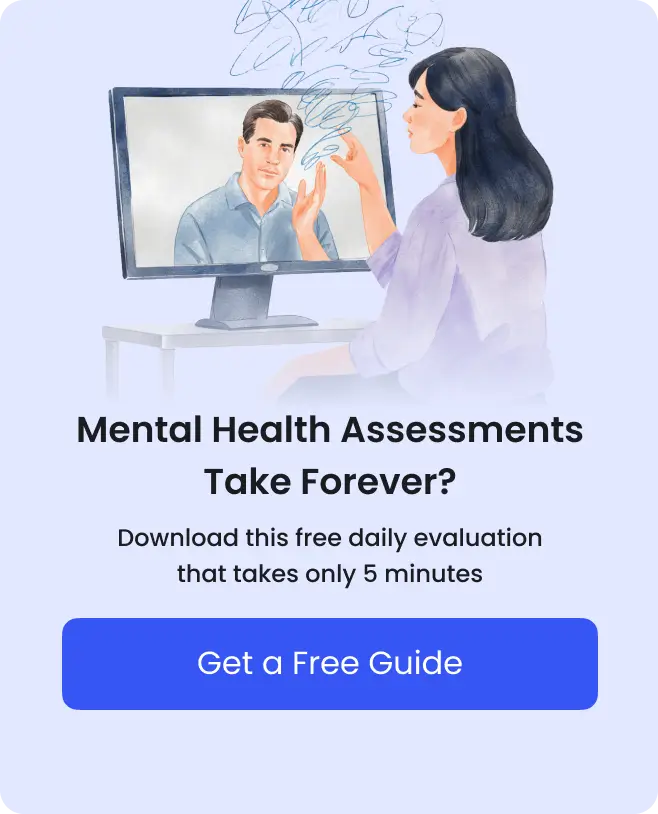You may experience chronic stress or intense emotional pain regularly and have fuzzy or incomplete memories. This article will clear things up. We’ll explore 15 signs of repressed childhood trauma in adults so you can recognize them and take steps toward your emotional and physical health.
15 Signs of Repressed Childhood Trauma in Adults
As an adult, you might not “remember” the trauma, but your nervous system does. It may speak through your habits, your fears, and your body. Here are 15 signs that your past might have repressed memories.
1. You have low self-esteem
Past trauma may cause a constant feeling that something is wrong with you. Childhood abuse, neglect, bullying, witnessing violence, or growing up with a caregiver who experiences substance abuse can leave an ongoing impact on a person’s everyday life and influence how they view themselves.
2. You’re constantly in shame mode
A shame spiral is particularly dangerous because it functions as a feedback loop, where feeling bad about yourself leads to behaviors that make you feel even more isolated and flawed:
- You tend to distance yourself from those who are important to you.
- You find it difficult to say “no” to people, even when it’s appropriate.
- Even when it’s not your fault, you apologize a lot.
- You feel like everyone is judging you.
- You wonder, “Why do I feel so guilty?” even for things that might not be your fault.
- You require reassurance from someone all the time.
3. You have insecure attachment styles
You may fear abandonment stemming from past wounds or betrayals that never quite healed, and develop an insecure attachment style:
- Anxious attachment. This style functions like a sensitive radar. People with anxious attachment are hyper-attuned to their partner’s moods and tone of voice. When they sense a shift, they might “protest” by being clingy, over-communicating, or seeking constant reassurance to quiet the fear that their partner is losing interest.
- Dismissive-avoidant attachment. Here, the fear of abandonment is masked by a need for independence. If you have a dismissive-avoidant attachment style, you might view emotions as a sign of weakness or feel “suffocated” when a relationship gets too deep. That’s why you maintain a distance from others.
- Disorganized (fearful-avoidant) attachment. This is the “come here, now go away” dynamic. It may arise from childhood trauma, where the source of fear was also the source of comfort. As an adult with disorganized (fearful-avoidant) attachment, you desperately crave love but find yourself paralyzed by the suspicion that betrayal is inevitable, leading to a cycle of intense closeness followed by sudden emotional withdrawal.
4. You tend to avoid people
Have you ever found yourself canceling plans because of negative self-talk? That can be one of the common signs of repressed memories.
Sometimes, pulling away from social situations can be tempting when feeling down on yourself. You may worry people won’t like the “real you,” or maybe staying alone feels familiar.
But the truth is, staying isolated can make those feelings of low self-esteem even stronger. It’s like a cycle that feeds itself. You feel like a failure, so you avoid people, which makes you feel even more alone and reinforces those negative beliefs.
5. You feel hopelessness
Childhood trauma can leave you feeling helpless. You might start to believe you have no control over what happens to you. In moments when you think, “I don’t know what to do with my life,” it may be hard to imagine things ever improving, which makes it even harder to take steps toward healing.
6. Emotions often take over you
You may have difficulties in emotional regulation or experience intense mood swings, wondering, “Why am I so emotional?” These could be signs of repressed childhood memories.
In fact, research suggests that unresolved trauma can impact brain development, causing structural changes. This might influence areas involved in stress, fear, and managing emotions.
7. You experience emotional triggers, flashbacks, frequent nightmares, and intrusive thoughts
- Emotional triggers are sights, sounds, smells, or situations that can bring back painful memories and cause emotional distress.
- Flashbacks are vivid memories of past events that may feel so real and scary that you might forget you’re not actually there.
- Intrusive thoughts or images can pop into your mind at any time.
- Stressful situations, like relationship problems or financial difficulties, can make it more likely to experience flashbacks, panic attacks, or other symptoms of childhood trauma.
8. You experience dissociative episodes
During these episodes, people may feel disconnected from themselves or reality. It’s a coping mechanism for overwhelming situations that feels like a temporary escape from your mind in response to something stressful.
Imagine daydreaming so intensely you feel spaced out, like you’re not really there. Or you’ve been on autopilot while driving, not really remembering the whole trip. In some cases, dissociative episodes can feel more extreme, like watching yourself from outside your body (depersonalization).
Many trauma survivors also experience dissociative amnesia when they don’t really remember their childhood trauma.
9. There is memory loss of some life events
Have you ever asked yourself, “Why can’t I remember my childhood?” Memory gaps may also be one of the signs of repressed childhood trauma in adults. This can be due to a protective response called dissociation (as discussed earlier), where a person unconsciously detaches from traumatic childhood memories.
10. You have false memories
Misremembering is a very vivid symptom of repressed memories. According to research, repressed childhood trauma can sometimes lead to inaccurate recollections of traumatic memories. It’s the mind’s attempt to cope with gaps in memory.
Psychologist Pauline Peck suggests that our brains could provide insights into repressed memories via experiences similar to dreams. It’s “something that doesn’t feel like a coherent narrative. You might have bits and pieces of memory or have a strongly felt “sense.”
| Signs of a False Memory | Signs of a Recovering Memory |
| Vivid and scripted. It feels like a movie with a clear start and finish. | Sensory and brief. It’s a specific smell, a sound, or a flash of an image. |
| Changes over time. Key details shift every time you think about it. | Consistent feeling. The “body sensation” stays the same even if details are blurry. |
| Highly suggestible. It appeared only after someone else told you it happened. | Spontaneous. It surfaced during a quiet moment or was sparked by a trigger. |
11. You experience difficulties with concentration
While we all experience lapses in concentration and motivation, this can also be one of the signs of repressed childhood trauma in adults. Here’s how to tell if it’s trauma-related rather than just fatigue or ADHD:
- The “vigilance” factor. Unlike ADHD, where your mind jumps between interesting ideas, trauma-based distraction feels like subconsciously scanning your environment for threats.
- Trigger-based gaps. If your ability to concentrate reduces specifically when a certain topic, tone of voice, or environment is present, it’s likely a trauma response. Your brain is “checking out” (dissociating) to protect you from an emotional trigger.
- Physical bracing. Fatigue goes away with sleep, but trauma-induced brain fog is usually accompanied by a “braced” body—clenched jaws or tight shoulders—even when you’re supposedly relaxing.
- Sudden “checking out.” While ADHD is a consistent baseline of distractibility, trauma-related focus issues often feel like a sudden numbness. You may feel fine one minute and then suddenly feel lost, as if something subconscious has signaled danger.
12. You have a distorted body image
Repressed childhood trauma can lead to body dysmorphia. It can cause shame and guilt, leading to low self-esteem and a negative body image. As a result, you may turn to food for comfort, which can also cause eating disorders.
13. You experience regular pain
Sometimes, repressed childhood trauma can show up in physical symptoms, especially if you experienced physical abuse or domestic violence. It’s like your body remembers this emotional pain. According to research on somatization, repressed childhood trauma can cause a variety of physical symptoms:
- Stress is acting up. Unresolved trauma can turn into headaches or tight muscles. Imagine feeling anxious before a big test. The anxiety can cause stomachaches or other physical pains.
- Emotions showing up in pain. Sometimes, stuff you haven’t dealt with can turn into pain in your body. Maybe you felt sad a lot as a child and never really talked about it. Now, whenever you feel worthless again, your stomach might hurt.
- Hypervigilance. If you’ve been through something scary, your body might stay on high alert, making muscles tense.
14. You have health problems
Among the signs of repressed childhood trauma in adults can also be your state of health. Stress from past experiences weakens the body, while unhealthy coping mechanisms and brain development changes can increase the risk of illness as a response to adverse childhood experiences.
15. You experience mental health conditions
People who have experienced childhood trauma may be more prone to certain mental health conditions, including:
- Anxiety. Childhood trauma can make you feel on edge, anxious, or constantly worried. This might be related to anxiety disorders.
- Depression. Feeling down or hopeless all the time, and a history of emotional neglect, can make it harder to feel good about yourself and potentially lead to depression.
- Borderline personality disorder. BPD is caused by a combination of an invalidating environment and a biological predisposition toward high emotional sensitivity, research shows. Parental punishment, dismissal, or erratic responses to a child’s crying, fear, or joy prevent them from learning how to regulate their emotions.
- PTSD after a scary event. If you experienced something frightening as a child, it might affect you even as a grown-up. This could show up as childhood PTSD (post-traumatic stress disorder) or complex PTSD.

How Repressed Childhood Trauma Develops
Here are some of the common causes of repressed trauma:
- Neglectful or abusive parents.
- The loss of caregivers through divorce, abandonment, or death.
- Experiencing a frightening or distressing event, such as a life-threatening accident, can be a challenging experience.
- Living in an unstable environment where parents have substance use disorders.
- Being a parent to your own parents (parentification trauma).
- Sexual violence, including incest and sibling sexual abuse.
Healing Journey: How to Deal with Repressed Childhood Memories through Therapy
There are different types of therapy for trauma, and some that might be helpful include approaches like CPT, prolonged exposure therapy, and EMDR. When the brain decides it is finally safe enough to stop guarding old information, the past may return in pieces.
1. Cognitive Processing Therapy
Cognitive Processing Therapy (CPT) is a trauma therapy approach that helps a person examine how a traumatic experience has shaped the way they see themselves, others, and the world around them. People who experience childhood trauma can develop beliefs related to guilt, blame, or fear that may no longer reflect their current reality. CPT identifies these patterns and challenges thoughts that keep a person feeling unsafe.
CPT doesn’t require someone to relive the traumatic childhood memories in detail. It focuses on choice, emotional safety, and trust. CPT helps you understand the meaning assigned to the event and how it influences daily life. For many people, CPT can be especially helpful in rebuilding a sense of control and improving nervous system regulation after adverse childhood experiences.
2. Prolonged Exposure Therapy
Prolonged exposure therapy takes a different route to treat trauma. It helps a person gradually and safely deal with memories, feelings, or situations they’ve avoided since the traumatic event. A person can learn that events that trigger traumatic memories are not dangerous in the present moment. The whole process is grounded in trust and emotional vulnerability.
3. Eye Movement Desensitization and Reprocessing (EMDR)
EMDR uses bilateral stimulation, such as guided eye movements, to help a person access and reorganize adult childhood trauma. EMDR allows working with traumatic experiences without needing to revisit every detail out loud.
Addressing childhood trauma can sometimes feel like a double-edged sword; processing the traumatic events is painful and uncomfortable, but continuing to repress or avoid the childhood trauma can impact you both emotionally and physically. Seeking the resources available to you can lead you to begin your healing journey. While there may not be an easy answer, confronting your childhood trauma in a safe space will allow you to no longer be controlled by what happened to you and begin to live a more satisfying, meaningful life.
Frequently asked questions
1. What does 'repressed' actually mean?
It means your brain took a memory and hid it in a “junk drawer” you can’t open easily. It’s not gone; it’s hidden because you didn’t have the tools to deal with it. It was your mind’s way of keeping you moving.
2. Why do I get upset over 'nothing'?
Usually, it’s not “nothing.” It’s a trigger. Something in the present—a loud noise, a specific look, or even a smell—reminded your body of a past hurt. Even if you don’t remember the why, your body remembers the danger.
3. Does 'healing' mean I have to remember everything?
Not at all. You don’t need a full transcript of your childhood to get better. Healing is more about teaching your body that it’s safe today. Whether the memories stay foggy or start to clear up, the healing is when you can live your life without being triggered by things you can’t even name.
Sources
- Christian Ruff, Valerio Mante, Sepp Kollmorgen. The effect of early childhood and in-utero trauma on brain development, educational outcomes, and professional attainment.
- Otgaar H, Muris P, Howe ML, Merckelbach H. What Drives False Memories in Psychopathology? A Case for Associative Activation. September 2017
- The American Academy of Child and Adolescent Psychiatry. Physical Symptoms of Emotional Distress: Somatic Symptoms and Related Disorders. October 2023
- Roberto Pedone, Luca Pistone, Eduardo Maria Schettino, Giovanni Florio. Associations between childhood trauma and personality disorder traits: A cross-sectional study in the general population. June 2025
Disclaimer
This article is for general informative and self-discovery purposes only. It should not replace expert guidance from professionals.
Any action you take in response to the information in this article, whether directly or indirectly, is solely your responsibility and is done at your own risk. Breeze content team and its mental health experts disclaim any liability, loss, or risk, personal, professional, or otherwise, which may result from the use and/or application of any content.
Always consult your doctor or other certified health practitioner with any medical questions or concerns
Breeze articles exclusively cite trusted sources, such as academic research institutions and medical associations, including research and studies from PubMed, ResearchGate, or similar databases. Examine our subject-matter editors and editorial process to see how we verify facts and maintain the accuracy, reliability, and trustworthiness of our material.
Was this article helpful?






